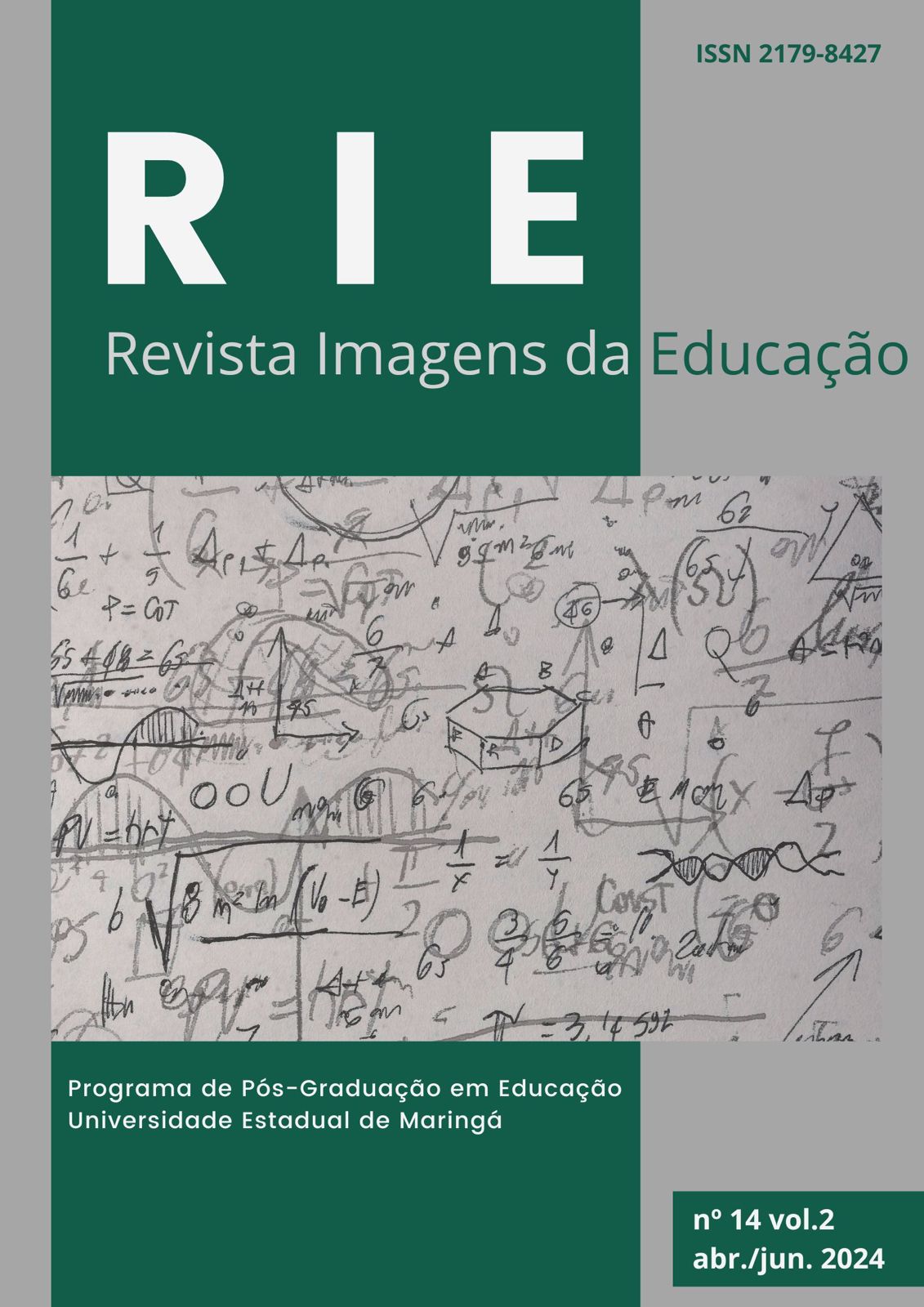PROBLEMA DE APRENDIZAGEM NOS ANOS INICIAIS DO ENSINO FUNDAMENTAL
A CONCEPÇÃO DO PROFESSOR
Résumé
A aprendizagem é um processo pelo qual o indivíduo constrói o conhecimento em um ambiente que proporcione uma troca entre professor e aluno. Esse processo pode sofrer interferências, sendo que os problemas de aprendizagem derivam de fatores externos ao indivíduo. O objetivo desta pesquisa foi investigar a concepção de problema de aprendizagem dos professores dos anos iniciais do ensino fundamental. A pesquisa teve uma abordagem quantitativa descritiva e o delineamento foi o levantamento de dados. Participaram 38 professores que lecionam em escolas públicas municipais urbanas. Para a coleta de dados, utilizou-se um questionário com 10 perguntas. Na análise dos dados, percebe-se que os professores apresentam um bom conhecimento teórico a respeito da função da escola e do processo de ensino e aprendizagem. Porém, quando questionados sobre os problemas de aprendizagem, os fatores que os ocasionam e as dificuldades em sala de aula, eles culparam a família e o próprio aluno. Quanto à metodologia e didática, reconheceram sua importância. A grande maioria utiliza-se da metodologia construtivista, seguida da tradicional e sócio-interacionista. Muitos afirmaram que não se detêm em apenas uma metodologia, variando-a conforme os alunos e a turma. Dessa forma, nota-se uma incoerência no discurso desses professores, separando teoria e prática.
Téléchargements
Références
do Brasil.
Alves, D. V. (2007). Psicopedagogia: Avaliação e Diagnóstico. 1. ed. Escola Superior Aberta
do Brasil
Karashash, Z., Aziya, Z., Assyl, A., Meirgul, O., Zagira, Z., & Bauyrzhan, Z.,(2022)
Developing metacompetence in future primary school teachers. Cypriot Journal of
Educational Science. 17(1), 284-295. https://doi.org/10.18844/cjes.v17i1.6709.
Leal, F. S. (2010). As dificuldades do ensino e aprendizagem no ensino fundamental I - Análise
das dificuldades de aprendizagem no ensino fundamental I, da Escola Municipal Damásio
Eugênio de Sousa em Jaicós-PI. [Monografia (Licenciatura em Pedagogia) – Faculdade
Evangélica Cristo Rei – FECR, Jaicós – PI].
Lyon, G. R., Shaywitz, S. E., & Shaywitz, B. A. (2003). A definition of dyslexia. Part I:
Defining Dyslexia, Comorbidity, Teachers’ Knowledge of Language and Reading. Annals
of Dyslexia, 53, 1-14. https://link.springer.com/journal/11881/volumes-and-issues/53-1
Libâneo, J. C. (1994). O processo de ensino na escola. São Paulo: Cortez.
Marcondes, M. I. (2008) Notas de Leitura, Revista Brasileira de Educação. Vol. 13 (39).
https://doi.org/10.1590/S1413-24782008000300017.
Miguel, M.E.B., Vidal, D.G., Araújo, J.C.S. (2011). Reformas educacionais: As manifestações
da escola nova no Brasil (1920-1946). EDUFU.
Mizukami, M. G. N. (1986). Ensino: As abordagens do Processo. São Paulo: EPU.
Moojen, S. (2004). Diagnósticos em psicopedagogia. Rev. Psicopedagogia. v.21, 66. ed., 2.
Nepomuceno, C., & Bridi, J. C. A. (2010). O papel da escola e dos professores na educação de
crianças que apresentam dificuldade de aprendizagem. Revista Eletrônica de Ciências da
Educação. Campo Largo, v. 9, n. 1.
Oliveira, W. M. (2014). Uma abordagem sobre o papel do professor no processo
ensino/aprendizagem. Revista Eletrônica Saber, v.23, jan/fev/mar.
Paín, S. (1989). Diagnóstico e Tratamento dos Problemas de Aprendizagem. 3. ed. Porto
Alegre: Artes Médicas.
Park, J.H , Cooc, N. & Lee, K.H. (2023). Relationships between teacher influence in managerial
and instruction-related decision-making, job satisfaction, and professional commitment: A
multivariate multilevel model. Educational Management Administration & Leadership, Vol.
51(1) 116–137. https://doi.org/10.1177/1741143220971287.
Piaget J. (1998). Seis estudos de Psicologia. Forense Universitária.
Santos, C. C. P., Silva, M. G., Virgens, M. L. M., Fernandes, N. A., Silva, V. F. M., & Oliveira,
V. L. (2009). Dificuldades de aprendizagem em leitura e escrita nas séries iniciais do Ensino
Fundamental. Revista Científica em Educação à Distância. Edição especial.
Santos, M. N., & Marques, A. C. (2013). Condições de saúde, estilo de vida e características de
trabalho de professores de uma cidade do sul do Brasil. Temas Livres • Ciência &. Saúde
Coletiva 18 (3). https://doi.org/10.1590/S1413-81232013000300029.
Silva, F. C., & Sartori, J. (2012). Dificuldades de aprendizagem: os desafios da carreira
docente. Revista Monografias Ambientais, v. 8, n. 8, p. 1759-1774.
Soares, D. C. R. (2003). Os vínculos como passaporte da aprendizagem: um encontro D’EUS.
2. Ed. Caravansarai.
Strick, C. & Smith, L. (2001). Dificuldades de aprendizagem de A a Z – Um guia completo
para pais e educadores. Porto Alegre: ARTMED.
Tabile, A. F., & Jacometo, M. C. D. (2017). Fatores influenciadores no processo de
aprendizagem: um estudo de caso. Revista Psicopedagogia. vol.34, no.103, São Paulo.
Triviños, A. N. S. (1994). Introdução à Pesquisa em Ciências Sociais. Atlas.
Vasconcellos, C. S. (2002). Planejamento: projeto de ensino-aprendizagem e políticopedagógico. São Paulo: Libertad.
Vygotsky LSA. (1991). A formação social da mente: o desenvolvimento dos processos
psicológicos superiores. Martins Fontes
Copyright (c) 2024 Imagens da Educação

Ce travail est disponible sous licence Creative Commons Attribution - Pas d'Utilisation Commerciale - Pas de Modification 4.0 International.
Declaro que o presente artigo é original, não tendo sido submetido à publicação em qualquer outro periódico nacional ou internacional, quer seja em parte ou em sua totalidade. Declaro, ainda, que uma vez publicado na revista Imagens da Educação,ele não será submetido por mim ou pelos demais co-autores a outro periódico. Por meio deste instrumento, em meu nome e dos co-autores, cedo os direitos autorais do referido artigo à Revista e declaro estar ciente de que a não observância deste compromisso submeterá o infrator a sanções e penas previstas na Lei de Proteção de Direitos Autorias (Nº 9609, de 19/02/98).















1.png)

